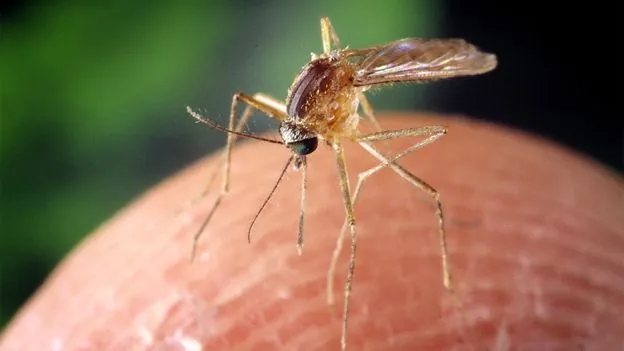
The Deadly Resurgence of West Nile Virus: A Global Crisis Without a Cure
2024-09-22
The West Nile virus, a mosquito-borne pathogen that has quietly lurked in the shadows for decades, is increasingly becoming a public health crisis across the U.S. and Europe. Despite its long-standing presence, there remains no vaccine or cure for infection in humans, raising alarm among health professionals worldwide.
In a concerning turn of events, renowned immunologist Dr. Anthony Fauci, who was pivotal in managing both HIV and COVID-19 responses, recently fell ill with West Nile virus after being bitten by an infected mosquito in his own backyard. Fauci’s case is not an isolated incident; each year, approximately 2,000 Americans are infected, leading to 1,200 severe neurological cases and over 120 deaths, according to the Centers for Disease Control and Prevention (CDC).
"Anyone can be at risk from a simple mosquito bite," warns Kristy Murray, a leading researcher from Emory University. While older adults are particularly susceptible, cases among young people are also on the rise. The virus, first identified in Uganda in the 1930s, made its terrifying debut in the western hemisphere in 1999 with an outbreak in New York City that infected around 8,200 individuals.
The virus travels primarily through birds, with mosquitoes acquiring it by feeding on these infected creatures before transmitting it to humans. Despite the significant health impact and grave risks associated with the virus—it can cause neuroinvasive disease in about 1 in 150 infections—public awareness remains woefully inadequate.
Recent research indicates that climate change may exacerbate West Nile virus outbreaks. Warmer temperatures favor mosquito proliferation and increase their biting rates, and places like Spain have witnessed troubling trends in virus circulation. Although the majority of infections are asymptomatic, those who develop severe symptoms face devastating neurological consequences.
Efforts to develop human vaccines have unfortunately stalled. While effective vaccines have been available for horses for two decades, attempts to create similar protections for humans have faced significant hurdles. A report indicated that from 2004 to 2016, multiple clinical trials were conducted, yet none advanced to the essential Phase 3 studies required for regulatory approval. Experts like Carolyn Gould of the CDC attribute this deficit partly to the sporadic nature of outbreaks making it difficult to demonstrate a vaccine's effectiveness in trials.
Critics argue that the failure to develop a vaccine stems from corporate disinterest due to the high costs and uncertain financial returns. Paul Tambyah, president of the International Society for Infectious Diseases, notes that public-private partnerships could provide the necessary funding to conduct global trials in both the U.S. and regions where the virus is endemic.
Additionally, the plight of those severely affected underscores an urgent need for effective treatments. Current research is exploring potential antiviral medications, with discussions around the role of steroids in managing inflammation caused by the virus gaining traction among experts.
As health officials and researchers rally for increased attention to this neglected disease, the involvement of prominent figures like Dr. Fauci highlights the necessity to act swiftly. Murray emphasizes that without substantial investment in research, the cycle of West Nile outbreaks—observed over the past 25 years—will only continue, affecting countless lives.
As the world grapples with the realities of emerging infectious diseases, it's crucial that public health systems prioritize West Nile virus research and treatment solutions to stem this growing threat. The question remains: how many more casualties will it take before decisive action is taken?


 Brasil (PT)
Brasil (PT)
 Canada (EN)
Canada (EN)
 Chile (ES)
Chile (ES)
 España (ES)
España (ES)
 France (FR)
France (FR)
 Hong Kong (EN)
Hong Kong (EN)
 Italia (IT)
Italia (IT)
 日本 (JA)
日本 (JA)
 Magyarország (HU)
Magyarország (HU)
 Norge (NO)
Norge (NO)
 Polska (PL)
Polska (PL)
 Schweiz (DE)
Schweiz (DE)
 Singapore (EN)
Singapore (EN)
 Sverige (SV)
Sverige (SV)
 Suomi (FI)
Suomi (FI)
 Türkiye (TR)
Türkiye (TR)